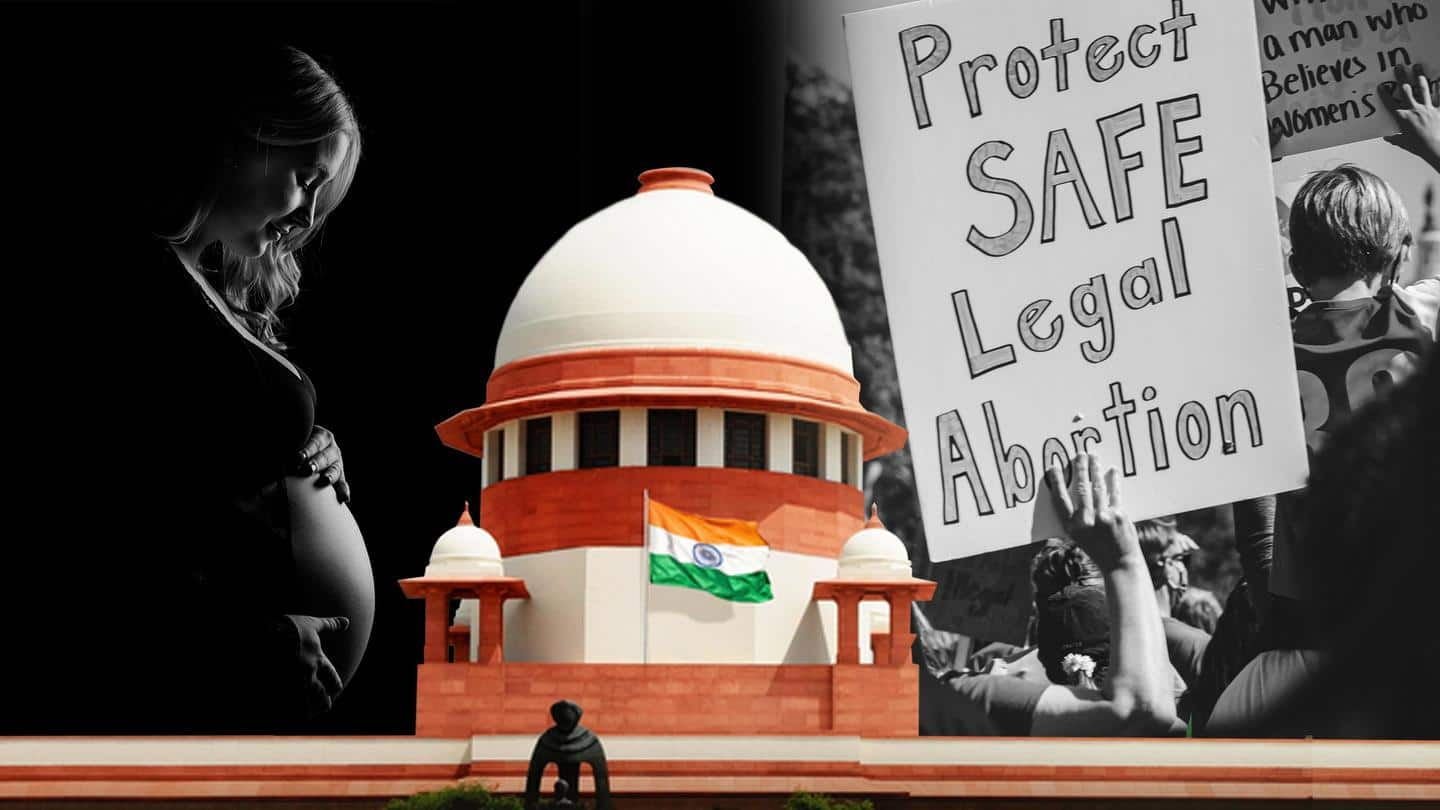
All women, married or unmarried, entitled to legal abortion: SC
What's the story
In a groundbreaking judgment, the Supreme Court of India on Thursday ordered that all women are entitled to safe and legal abortion.
A three-judge bench ruled that the distinction between married and unmarried women is unconstitutional.
The top court stated that the 2021 Amendment in the Medical Termination of Pregnancy Act (MTP Act) does not differentiate between married and unmarried women.
Context
Why does this story matter?
The USA placed a controversial ban on abortions earlier this year and triggered a vociferous debate over women's reproductive rights.
Meanwhile, a 25-year-old single woman's plea for abortion, previously rejected by the Delhi HC, received a go-ahead from the top court, who then began examining MTP Act's scope to unmarried women.
The order is crucial in determining Indian women's right to their bodies.
Order
What did the SC say?
The bench, comprising Justices DY Chandrachud, AS Bopanna, and JB Pardiwala, said that even unmarried women are entitled to seek abortion within 20-24 weeks of pregnancy, Live Law reported.
It ruled the exclusion of unmarried women "who conceive out of a live-in relationship" from MTP unconstitutional.
"Women must have autonomy to have free exercise of these rights," the court said.
Information
Artificial distinction between married & unmarried women: SC
Rule 3B of the MTP Act mentions the categories of women who can have their pregnancies terminated.
The bench said, "If Rule 3B(c) is understood as only for married women, it would perpetuate the stereotype that only married women indulge in sexual activities...The artificial distinction between married and unmarried women cannot be sustained."
Excluding unmarried women violates Article 14, the SC noted.
Meaning
What does this judgment mean?
The SC order essentially means that any woman, married or unmarried, can seek out abortion between 20-24 weeks of pregnancy. Unmarried women, much like married women, can seek abortion till the 24th week of pregnancy.
The bench reiterated the need to reflect on social realities and evolve with society and focus on granting bodily autonomy to women for them to be able to sustain.
Dignity of women
Historic order also defines marital rape
In a strongly-worded order, the bench said, "If the State forces a woman to carry an unwanted pregnancy to full term, it will amount to an affront to her dignity."
Notably, in historic recognition of marital rape, the court said that wives conceiving due to "forced sex" can also seek abortion.
Rape under the MTP Act should also mean marital rape, the bench noted.
Background
Here's a deeper dive into the case
A 25-year-old unmarried woman approached the Delhi HC to seek termination of her 23-weeks-and-5-days pregnancy. The court refused to grant relief citing MTP, 2003 clauses.
On July 21, the SC allowed her to terminate the pregnancy at AIIMS Delhi and took into account the 2021 amendments made to the MTP Act.
The final order was declared on Thursday, September 29.